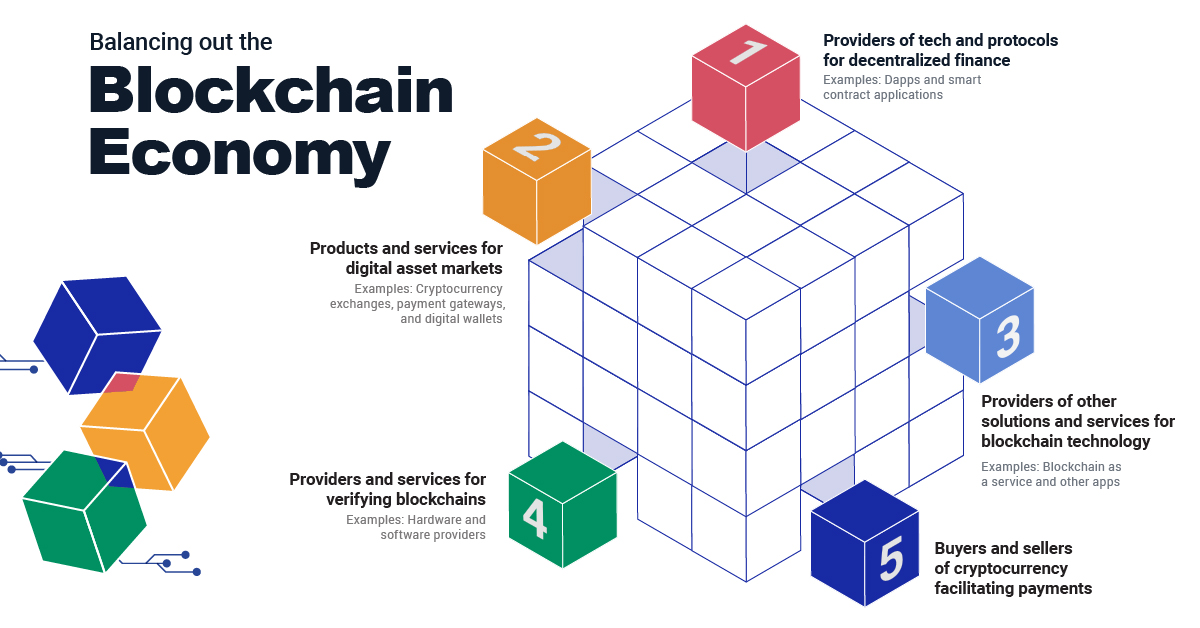Building Balanced Exposure to the Blockchain Economy

9 Factors Sparking the Future of Mining in British Columbia
Jurisdictions are an important factor in building a successful mineral exploration project.
In Canada, British Columbia (B.C.) is building a brighter future for mining and mineral exploration.
This infographic from our sponsor B.C. Regional Mining Alliance (BCRMA) details nine factors that make the province the right jurisdiction for mining.
#1: A Strong Mining Ecosystem
B.C. has a long history of mining that has produced a wealth of global industry experts. Today, the region is bustling with exploration activity and has:
- 326 active exploration projects
- $660 million in 2021 exploration spending
- Over 1.4 million meters of exploration drilling in 2021
- 17 operating metal and coal mines
In addition, the province also offers comprehensive geological data, research from leading institutions, and over 3,700 mining supply companies.
#2: Geological Potential
B.C.s mining ecosystem is built on its robust history and immense geological potential. In 2020, the province produced a diverse range of commodities, including gold, silver, copper, and other base and industrial metals.
| Mineral | 2021 Production Value (billions) | % of Total Value |
|---|---|---|
| Steelmaking coal | $6.3B | 49.7% |
| Copper | $3.7B | 29.3% |
| Gold | $1.5B | 12.1% |
| Construction aggregates | $0.5B | 3.6% |
| Industrial minerals | $0.4B | 3.4% |
| Other | $0.2B | 1.9% |
| Total | $12.6B | 100.0% |
B.C. is Canadas only producer of molybdenum, used in metallurgy and chemical applications, in addition to being Canadas leading producer of copper and steelmaking coal.
The provinces Golden Triangle located in the northwestern region contains some of the most important gold deposits in Canada, endowed with minerals worth more than $800 billion.
#3: Effective Regulations
B.C.s stable, transparent, and effective policy environment makes it straightforward to turn mineral endowment into mineral production.
The province ranked as the worlds least-risky jurisdiction for mining in 2017 and 2018, with its collaborative authorization across government departments reducing timelines for mineral operators and explorers.
Furthermore, B.C. uses a standardized mine approval process for all companieslocal, national, or international.
#4: Lasting Indigenous Partnerships
Supportive Indigenous communities facilitate exploration and mining efforts in B.C., and in turn, mining accounts for over two-thirds of all indigenous people employed in the extractives sector.
In 2018, 120 Indigenous-affiliated businesses exchanged $265 million worth of goods and services with B.C.s 17 operating mines. Furthermore, B.C. was Canadas first province to share mineral tax revenue with First Nations, with over $130 million shared with communities to date.
#5: Infrastructure for Mining
B.C. offers an infrastructure that supports and enhances exploration and mining, including:
- A $700M high-voltage transmission line
- Upgraded highways
- Hydroelectric power facilities
- Upgraded ocean port infrastructure
#6: Mining’s Impact on Local Economies
The mining industry is key to B.C.s economy as its benefits reach all 203 local communities in the province.
In 2020, B.C.s mining industry generated $9.5 billion in gross revenue and contributed $382 million to government revenues, employing 11,378 people.
#7: Choice Destination for Responsibly Sourced Metals and Minerals
Environmental, Social, and Governance (ESG) factors are becoming increasingly important for investors while selecting where to invest.
B.C. offers the opportunity to invest in a globally recognized jurisdiction where raw materials are produced in line with ESG standards due to progressive climate policies, strict environmental regulations, a skilled labor force, and adoption of the UN Declaration on the Rights of Indigenous Peoples.
#8: Abundance of Critical Minerals and Metals
B.C.s mining industry is producing many of the metals needed for a cleaner future.
| Metal | Technological Applications |
|---|---|
| Copper | Wind turbines, solar panels, electric vehicles |
| Silver | Solar panels, electric vehicles |
| Zinc | Wind turbines, energy storage |
| Nickel | Electric vehicles, energy storage |
| Molybdenum | Wind turbines |
| Steelmaking Coal | Grid infrastructure |
With vast resources of critical minerals, B.C. is well-positioned to play a key role in the transition to a low-carbon economy and clean energy future.
#9: Increasing Activity and Financial Incentives
Exploration expenditure in B.C. has been rising for the last 5 years. Despite the impact of the pandemic, 2020 saw the highest level of exploration spending since 2014.
The provincial government provides incentives to actively encourage investments in exploration, mining, and innovation. These include tax credits for exploration, apprentice training, as well as investment allowances that let investors claim interest on capital invested while the mine is in production.
Mine development is also highly incentivized in B.C., with companies able to claim one-third of eligible capital expenses for the development and expansion of mines.
A Bright Future for Mining and Exploration
B.C.s natural potential for mineral exploration, combined with jurisdictional advantages, makes it one of Canada’s prime locations for the mining industry.
With effective regulations, mineral-rich geology, and an active mining industry, B.C. offers a bright future for mining and mineral exploration.
>>>The BCRMA is a strategic partnership between indigenous groups, industry, and government representatives that aims to promote B.C.s mining opportunities internationally.








 Bitcoin
Bitcoin  Ethereum
Ethereum  Tether
Tether  Solana
Solana  USDC
USDC  Lido Staked Ether
Lido Staked Ether  XRP
XRP  Dogecoin
Dogecoin  Toncoin
Toncoin